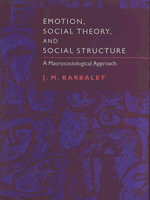6 - Rights, resentment, and vengefulness
Published online by Cambridge University Press: 22 September 2009
Summary
This chapter addresses the questions of human or basic rights, how such rights might be sociologically understood, and how they may be explained in terms of emotions categories. Sympathy is an emotion most frequently associated with the achievement of basic rights. It is argued here, though, that sympathy bears a problematic relationship with rights. Indeed, through a consideration of the case of lynching, it is shown that, rather than find their rights in the sympathy of others, persons who have lost their rights are likely to restore them through an active expression of resentment.
The chapter goes on to explicate and distinguish between the emotions of resentment and vengefulness, and to show how each contributes to the realization of basic rights. There is, it is true, a widely held supposition that these emotions drive not rights but bloody feud: well may they do so. But when the primary focus of analysis is on rights, then the more limited role and scope of the distasteful emotions of vengefulness and resentment emerges. To discuss them in this context, then, is to pick up what is most frequently not broached. The account of these emotions concludes with a discussion of the basis on which the social perception of their acceptable forms, as variants of justifiable anger, emerge.
Vengefulness and resentment are the emotional apprehension of a social violation of the satisfaction of a need. A discussion of basic needs is also provided in this chapter, in which three types of need are distinguished.
- Type
- Chapter
- Information
- Emotion, Social Theory, and Social StructureA Macrosociological Approach, pp. 126 - 148Publisher: Cambridge University PressPrint publication year: 1998



